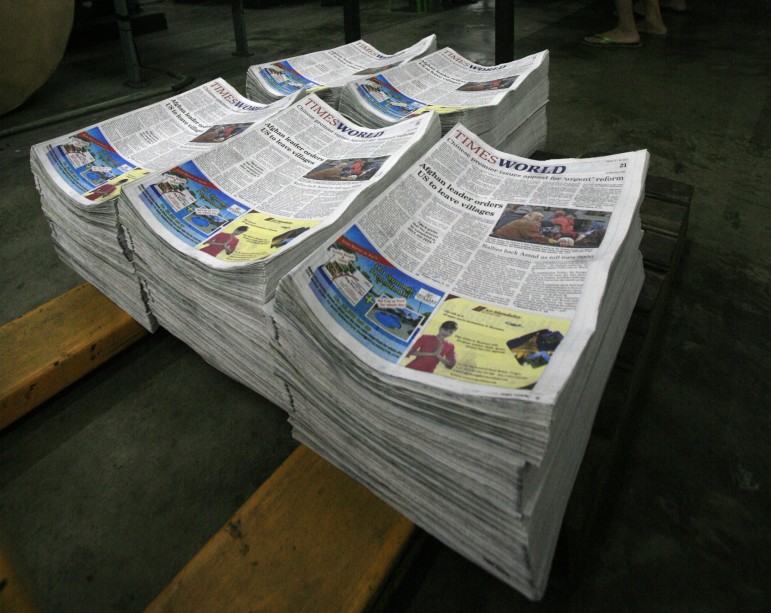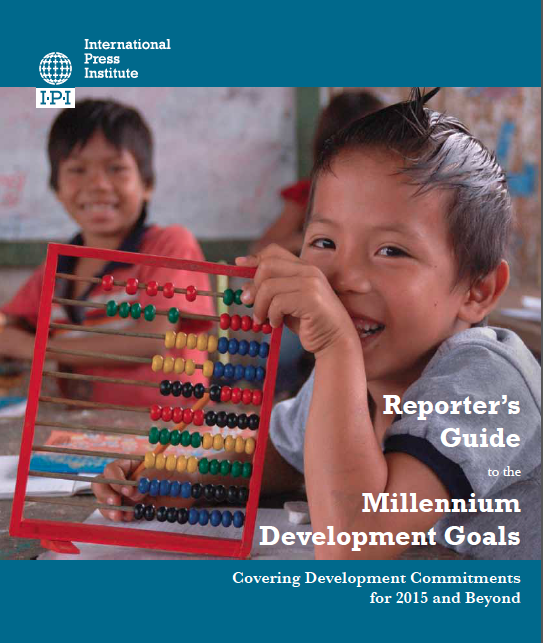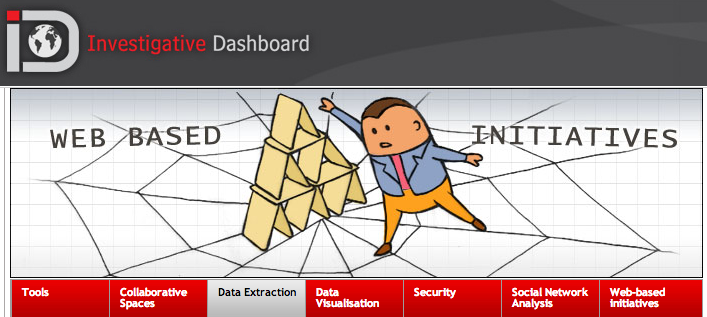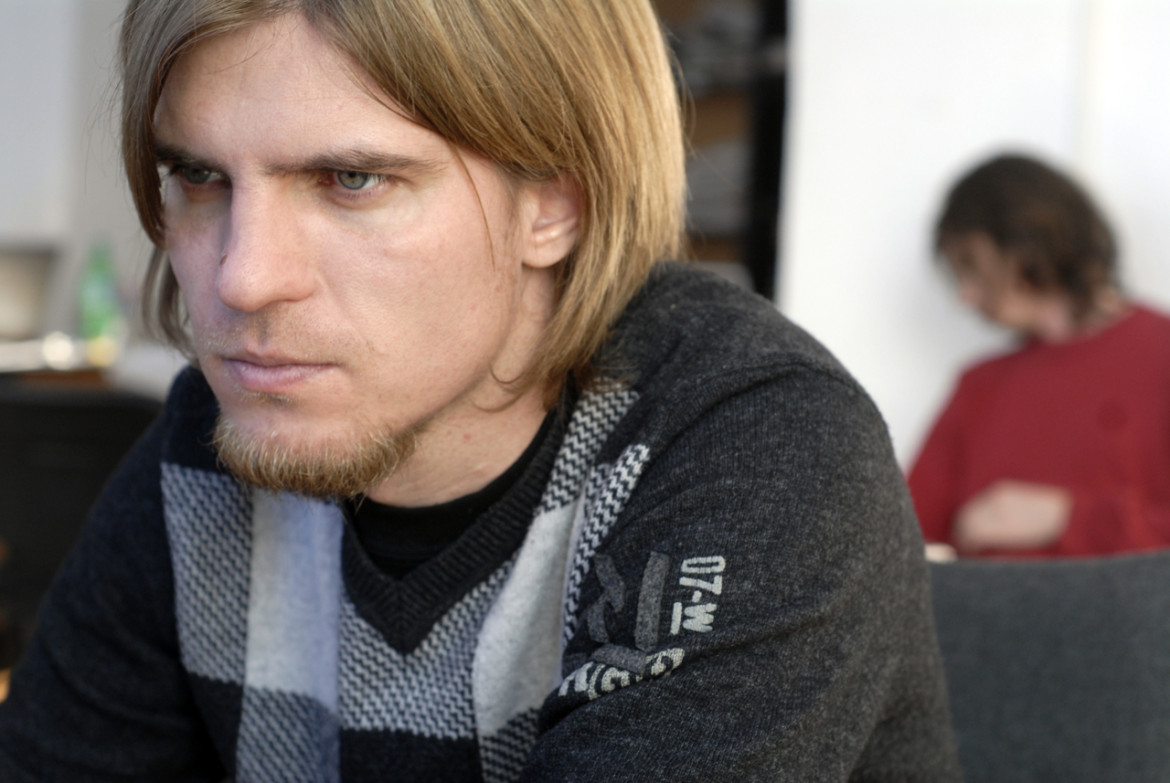

Investigative Journalism: It’s All About Cross-Border Cooperation
 Part 5 of a series GIJN is excerpting from the Reporter’s Guide to the Millennium Development Goals: Covering Development Commitments for 2015 and Beyond, published by the International Press Institute.
Part 5 of a series GIJN is excerpting from the Reporter’s Guide to the Millennium Development Goals: Covering Development Commitments for 2015 and Beyond, published by the International Press Institute.
Investigative journalists and other citizens interested in uncovering the organized crime and corruption that affect the lives of billions of people worldwide gain, with each passing day, unprecedented access to information.
Huge volumes of information are being made available online by governments and other organizations, and it seems that the much-needed information is in everyone’s grasp. However, corrupt officials in governments and organized crime groups are doing their best to conceal information and to hide their wrongdoings. They are making efforts to keep people in the dark, while they continue to commit crimes that may have huge impact on society, causing disruptions such as conflict, famine, or various types of humanitarian crisis. It is the duty of investigative journalists to uncover such wrongdoings and to play an active role in deterring corrupt officials and criminals in their criminal acts.
There are three main principles that, if followed, can lead to good, thorough journalism when investigating major acts of corruption and crime, even in the most austere of environments:
1. Think Outside Your Country
In many instances, it is much easier to get information from abroad than from within the country where the investigative journalist lives. Information gathered from abroad via foreign information databases or by using other countries’ access to information laws might be just what is needed to put the investigative puzzle together. On top of that, criminals and corrupt officials do not keep their money in the place they stole it from. They would rather deposit it in foreign banks, or they would rather invest in other countries. Crime is global.
Databases that assist the investigative journalist in tracking money worldwide can be found in a myriad of places on the Internet such as:
2. Make Use of Existing Investigative Journalism Networks
Investigative journalists all over the world are grouped in organizations such as:
- Organized Crime and Corruption Reporting Project
- African Forum for Investigative Reporting
- Arab Reporters for Investigative Journalism
- Global Investigative Journalism Network
And these are just a few of such organizations. Many of the reporters in such networks work on similar issues and confront similar situations, so it makes a lot of sense to exchange information and methods. E-mail lists are attached to these networks, so it is quite easy to get in touch with fellow journalists and to ask for information or advice. Investigative story ideas can also be gathered from such forums and e-mailing lists.
3. Make Use of Technology
 Software can help investigative journalists cut through the noise and through the large volumes of what seems like useless information to find the documents needed to break the story. Besides being able to use ready-made software for analyzing, gathering, or interpreting information, investigative journalists need to be aware that there are scores of computer programmers ready to help if asked.
Software can help investigative journalists cut through the noise and through the large volumes of what seems like useless information to find the documents needed to break the story. Besides being able to use ready-made software for analyzing, gathering, or interpreting information, investigative journalists need to be aware that there are scores of computer programmers ready to help if asked.
These programmers know how to get and to handle information, and they can assist if the journalist requires help. These programmers, some of them members of global open-data movements, can become invaluable allies in the fight against crime and corruption. They can assist journalists in gathering and in analyzing information.
A good example of an interface between these programmers and citizens can be found at www.scraperwiki.com.
Scraperwiki is a site where investigative journalists can ask programmers for help with extracting data from online websites and databases. Ready-made tools that can help journalists gather, shape, and analyze data can be found here.
There are other advantages to using the principles highlighted above, besides better access to information. One of them has to do with minimizing harm and insuring better protection for investigative reporters who work in hostile environments. This is because, when working in a network, the journalist is not alone; the investigative reporter works with colleagues in other countries, so it is harder for criminals to pinpoint who exposed their wrongdoings. As a result, retaliation from governments and corrupt officials is much harder to achieve.
Another thing to keep in mind is that information that does not seem very valuable in one geographical area might be crucially important in another. The exchange of information over investigative networks can lead to breaking very important stories. For example, the information that a Romanian was caught in Colombia with a kilogram of cocaine is most probably not front page news in Bogotá, but could be very important to the Romanian public if a local reporter learns that the person who was caught with the narcotics works for the government in Bucharest.
Efficient investigative reporting is, in the end, the result of cooperation between investigative journalists, programmers, and other social categories that are willing to crowd source information and to contribute in building a cleaner global society.
The Case of the President’s Daughters and the Telecom Firm
 The use of the investigative tools mentioned in this chapter is highlighted by the following example:
The use of the investigative tools mentioned in this chapter is highlighted by the following example:
Khadija Ismayilova is an Azeri investigative reporter working for Radio Free Europe/Radio Liberty’s (RFE/RL) Baku-based office. She works in a very austere environment when it comes to accessing information and has had to overcome lots of obstacles in order to offer the public good and reliable information. In June 2011, Ismayilova revealed that the daughters of Azeri President Ilham Aliyev secretly run, through Panama-based offshore companies, a fast-rising telecom company called Azerfon. The company boasts nearly 1.7 million subscribers, covers 80 percent of the country’s territory and was, at the time, Azerbaijan’s only provider of 3G services.
The RFE/RL reporter spent three years trying to find out who were the beneficial owners of the telecom company, but the government refused to disclose shareholder information. They claimed that the company was owned by German-based Siemens AG, a claim that has been flatly denied by Siemens. Ismayilova managed to find out that Azerfon was owned by a few Panama-based private companies, and this seemed to be a dead-end to her reporting until help from outside was employed. In early 2011, she learned through the Investigative Dashboard—a free-of-charge initiative to assist journalists in investigating organised crime and corruption—that companies in Panama can be tracked down through a software programmer-generated application developed by Scottish programmer and activist Dan O’Huiginn. It was then that she finally managed to uncover the fact that the president’s daughters were involved with the telecom company through Panama-based entities.
Panama, a very well-known offshore haven, has been allegedly used by corrupt officials from all over as a place to hide money—from cronies of former Egyptian president Hosni Mubarak to dirty officials in the Balkans and Latin America.
In fact, O’Huiginn created a tool that helped journalists from all over the world to report on corruption. What the programmer-activist has done is called web scraping, a method that allows the extraction and reshaping of information, so it can be used by investigators. O’Huiginn scraped the Panama registry of companies, because this registry, although open, only allowed searches if the investigative reporter knew the name of the commercial company he or she was looking for. This limited the possibility to investigate, as usually reporters look for names of persons in order to track down their assets. The programmer extracted the data and created a new website on which name-based searches are also possible. The new website has allowed investigative reporters in many countries to fish for information, to run names of government officials and parliamentarians, and to check if they secretly owned corporations in Panama just as the family of the Azerbaijan president did.
Paul Radu is executive director of the Organized Crime and Corruption Reporting Project, which he co-founded in 2006 and which works on cross-border investigative projects. He is also co-creator of the Investigative Dashboard concept. From 2009-2010 he was a Knight International Journalism Fellow at Stanford University. Paul began his career as an investigator for Romania’s then-best-selling newspaper, Evenimentul Zilei, in 1998. In 2003, he co-founded the Romanian Centre for Investigative Journalism. He is the recipient of numerous awards.
 Excerpted from Reporter’s Guide to the Millennium Development Goals: Covering Development Commitments for 2015 and Beyond. Agreed to in 2000, the UN Millennium Goals comprise an ambitious agenda to improve quality of life around the world, focusing on such issues as poverty, gender equality, and education. This unique manual, available in four languages, offers journalists practical tips on covering these critical areas as we near the 15th anniversary of the goals. Twenty-one journalists across six continents contributed to the report, including several active in GIJN. We are grateful to the publisher, the International Press Institute, for permission to publish the series, and to the European Press Photo Agency and EFE Agency for permission to publish the accompanying photos.
Excerpted from Reporter’s Guide to the Millennium Development Goals: Covering Development Commitments for 2015 and Beyond. Agreed to in 2000, the UN Millennium Goals comprise an ambitious agenda to improve quality of life around the world, focusing on such issues as poverty, gender equality, and education. This unique manual, available in four languages, offers journalists practical tips on covering these critical areas as we near the 15th anniversary of the goals. Twenty-one journalists across six continents contributed to the report, including several active in GIJN. We are grateful to the publisher, the International Press Institute, for permission to publish the series, and to the European Press Photo Agency and EFE Agency for permission to publish the accompanying photos.











